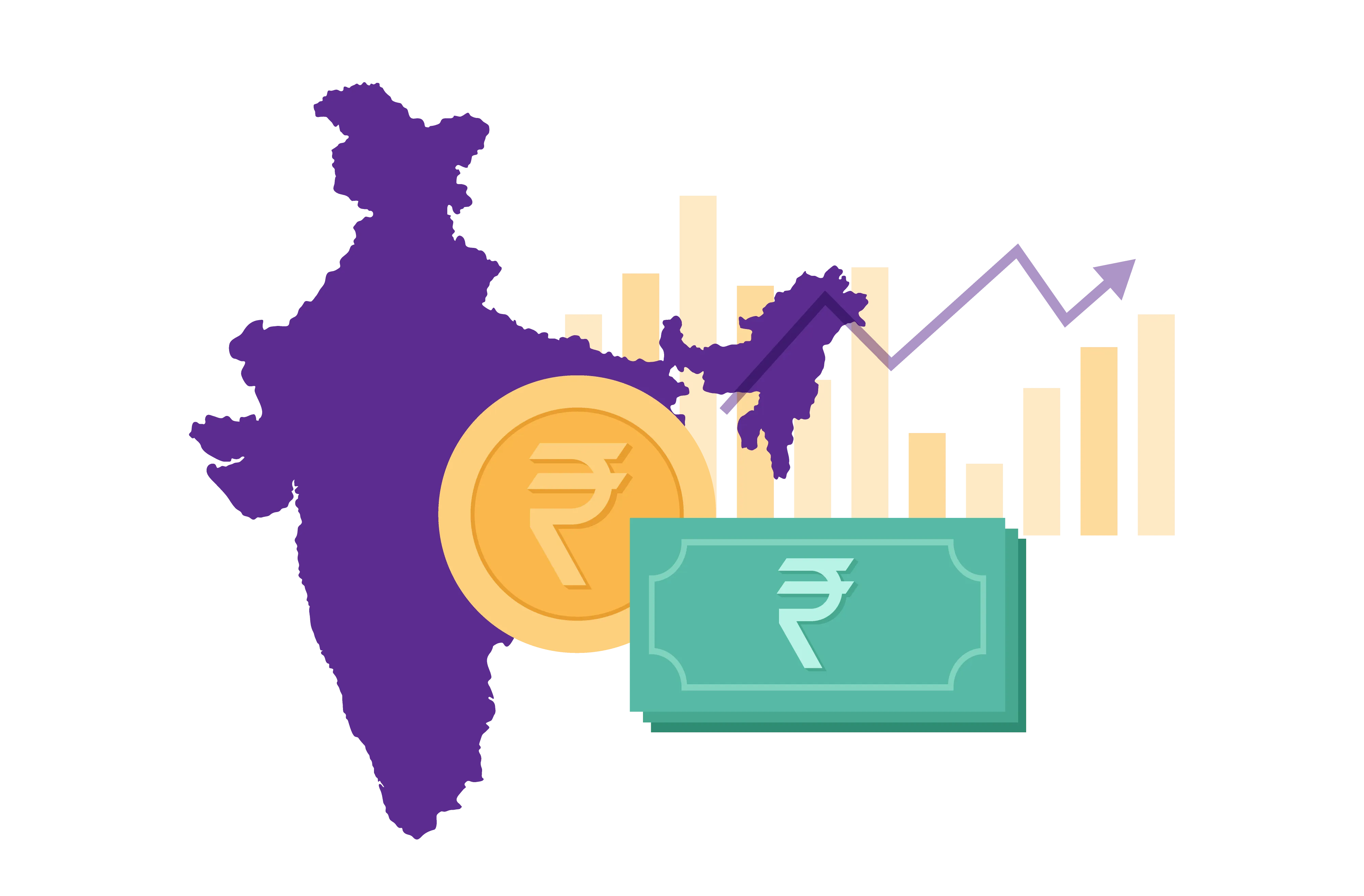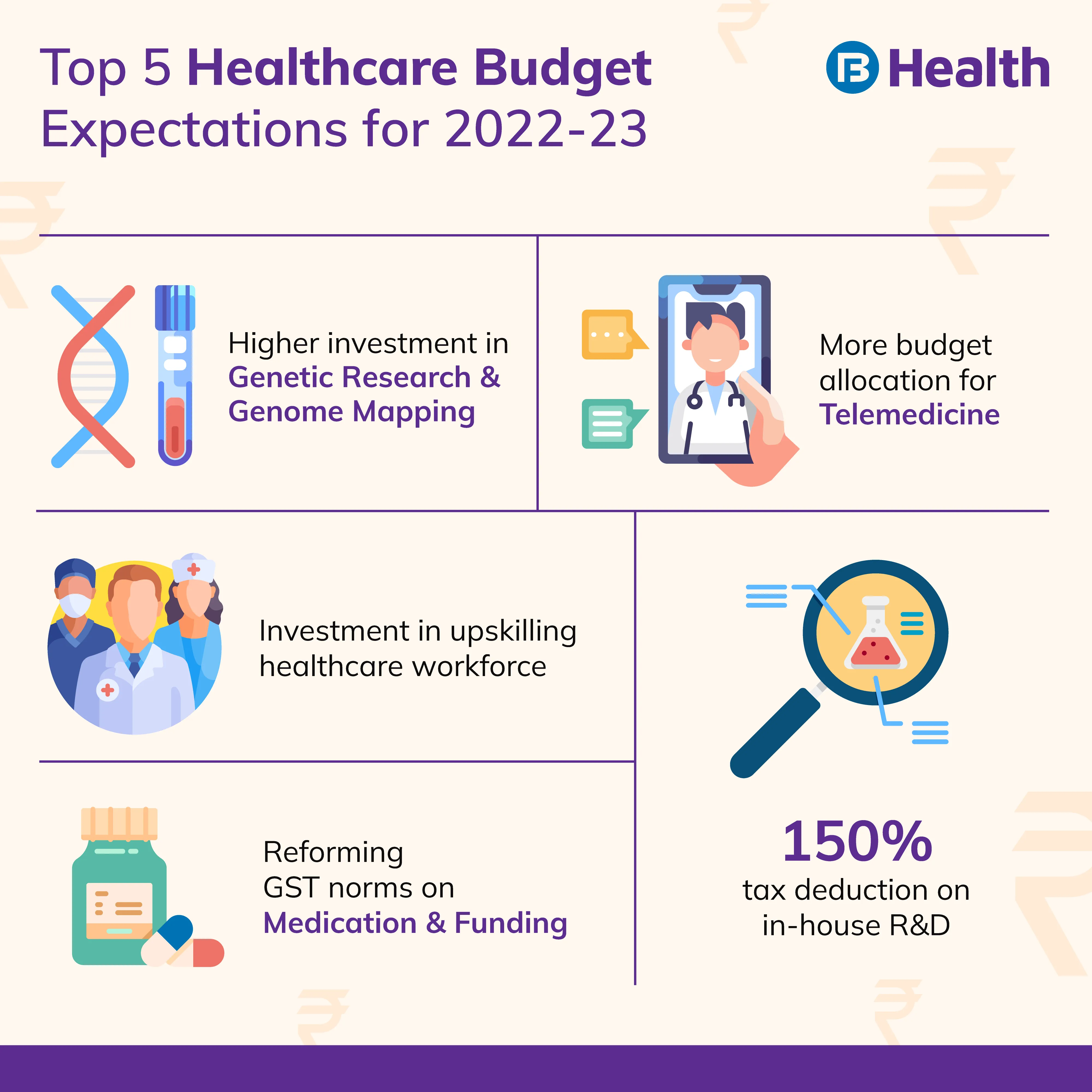General Health | 5 min read
Union Budget 2022: What Does the Healthcare Industry Expect?
Medically reviewed by
- Table of Content
Key Takeaways
- Veterans expect significant allocation for the booming telemedicine sector
- To improve health infrastructure, more public-private collaboration is expected
- Experts want significantly higher budget allocation to the NMHP initiative
Finance Minister Nirmala Sitharaman is set to announce the Union Budget for FY 2022-23 on 1st February 2022. When it comes to Indian healthcare, the pandemic has exposed many loopholes in the country's infrastructure. Healthcare is now one of the biggest priorities for the people and the government. On its part, the government announced, reformed and implemented many healthcare policies in the recent past.
This includes the National Digital Health Mission, the Ayushman Bharat scheme for better health insurance access, as well as a production linked incentive (PLI) scheme for the manufacturing of active pharmaceutical ingredients domestically. But in the last fiscal year, the gross budget allocation to healthcare was only 1.2% of the total Union Budget [1]. Historically, healthcare has not received a prominent budget allocation. The spend during 2020-21 was still below the target of 2.5% forecasted in the 2017 National Health Policy [2].
In 2020, Union Health Minister Harsh Vardhan said that the government is committed to increasing the expenditure on public health to 2.5% of India's GDP by 2025. Industry veterans are eager to see how close this year’s budgetary allocations will be to this promise. The healthcare industry’s expectations from the Union budget include better research funding, extending health coverage, and GST reforms.
Read on for an in-depth look at what the healthcare industry expects from the Union Budget 2022.
Increased and specific budget allocation for the telemedicine sector
The pandemic forced the medical industry online, providing consultations and diagnoses remotely. With physical restrictions in place, the telemedicine sector boomed and served many in need. It ensured healthcare was accessible to everyone, irrespective of safety and travel constraints. Despite the ease of restrictions, telemedicine is here to stay.
As per media reports, Vikram Thaploo, CEO of Apollo Telehealth believes that the telemedicine sector is growing at a rapid pace. Banking that the sector will see high innovation, making it an integral part of the healthcare system [3]. Vouching for a monetary boost, especially in a country like India. A thriving telemedicine sector will help provide medical care in hard-to-reach places. It will also reduce the burden on the healthcare facilities, providing higher penetration of top healthcare facilities in tier-2 and 3 cities.
Dedicated allocation to this sector will promote better home-based healthcare too. Further, experts believe it should be an integral part of the National Digital Health Mission. Moreover, the government must encourage the industry’s startups and private players. This will make these services cost-effective and available to everyone in the country, strengthening the health ecosystem of the country.

Increase budget allocation for National Mental Health Program (NMHP)
Media reports quote Dr. Prakriti Poddar, Managing Trustee of Poddar Foundation saying, “India’s mental healthcare system had several gaps even before the pandemic, and the situation has been exacerbated by the outbreak of COVID-19. In the last budget i.e. the Union Budget 2021-22, the budget for the NMHP remained the same as last year – Rs 40 crore” [4]. As per experts, this is not enough, especially given the mental health impact of the pandemic.
Simply allocating funds is not enough – it is imperative that the government set up counseling centers, create and deploy mental health awareness campaigns, and educate the masses about the necessity of seeking help from practitioners. Furthermore, mental health NGOs and public associations must receive recognition and funding. These measures will encourage mental health engagement across different community levels in the country.
An increase budget allocation will also make the NMHP program accessible to people in the lower strata of the society, including migrant workers and those belonging to the BPL population.
Encourage private-public collaborations for genome mapping and genetic research
India has a sizable and one of the youngest populations in the world. But there has been a steep drop in fertility rates from 2.2 to 2 from 2015-16 to 2019-21 [5]. The country’s non-communicable disease burden is also on the rise [6]. All this points to ballooning healthcare costs in the future. So, it is imperative that the government invest and promote public-private collaborations for genome mapping. This will help collect population data, enabling the discovery of various cures.
Dr. Tushar Grover of Vision Eye Centre has told media, “Given the rising frequency of infectious diseases, the government must invest enough through this budget into genetic research, vaccine and immunization research apart from other avenues of research including epidemiology and biotechnology” [7].

Tax rebates on drugs and research funding
Healthcare costs are skyrocketing, and industry experts bring up a critical aspect that will provide a boost for the sector. “Another important aspect for the government to consider is including all the life-saving drugs in the generic category and providing tax cuts on these drugs,” Debajit Sensharma of Paras Healthcare told media [8]. This will ensure that such medicines are accessible to everyone, reducing mortality rates.
Veterans also expect the government to relax utility payments and provide easy loans for private healthcare providers. This will help promote intensive R&D and manufacturing at an affordable cost within the sector. This initiative can help make India self-reliant in its healthcare needs.
Allocate budget to upskill healthcare workers
The lack of healthcare workers was a primary issue experienced during the pandemic. Experts like KR Raghunath , Senior Chairman, Jindal Naturecure Institute are quoted in the media as, “The budget for upskilling of the youth to become Preventive Health Coaches is also required since this will address the problem of unemployment and build on PM Modi’s Atmanirbhar mission” [9]. This will serve to increase the number of healthcare workers in the country, which can result in a better ratio of patients to medical staff.
The pandemic has highlighted the shortcomings of the healthcare infrastructure in our country. However, it has also increased the awareness of responsibility not only for government entities, but also private players. Both realize the need of increased collaboration. While private players are ushering an age of digitization and tech innovation to healthcare in the country, the government has shown promise to make public healthcare a pertinent and significant part of its budget and policies. Let’s wait and watch to see the updates on the Union Budget 2022-23.
- References
- Disclaimer
Please note that this article is solely meant for informational purposes and Bajaj Finserv Health Limited (“BFHL”) does not shoulder any responsibility of the views/advice/information expressed/given by the writer/reviewer/originator. This article should not be considered as a substitute for any medical advice, diagnosis or treatment. Always consult with your trusted physician/qualified healthcare professional to evaluate your medical condition. The above article has been reviewed by a qualified doctor and BFHL is not responsible for any damages for any information or services provided by any third party.




